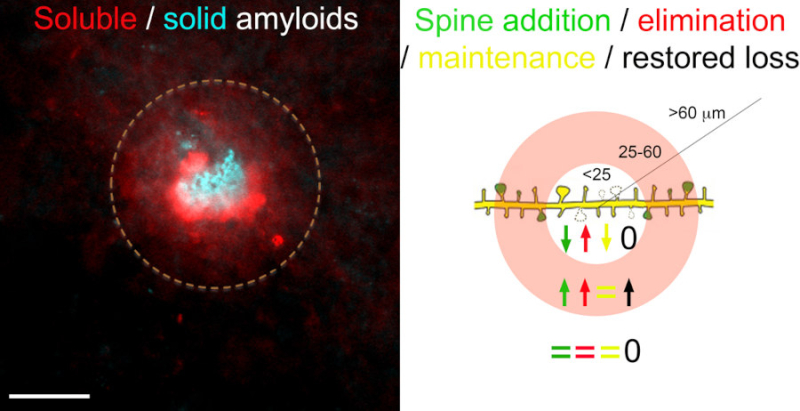DISSOCIATION BETWEEN THE BENEFICIAL AND TOXIC EFFECTS OF CORTISOL INFLUENCES THE PROGRESSION OF ALZHEIMER’S DISEASE
In an article in Acta Neurologica Communications, Freddy Jeanneteau’s team publishes the results of the STRESSALZ project, a longitudinal exploration of cognitive abilities and functional connectivity in the brain of mouse models of Alzheimer’s disease. Results highlight a signaling pathway that sorts the beneficial from the deleterious effects of the stress hormone cortisol on neuronal connectivity and memory. Results were validated in a cohort of 89 patients with Alzheimer’s disease and age-matched healthy controls.
Results show how the stress hormone interacts with soluble (oligomers) and solid (plaques) amyloids to alter neuronal connectivity in opposite fashion and proportions that transform how the memory trace form and evolve with time. These findings have important translational implications as they provide a novel approach to dissociate the beneficial from toxic effects of cortisol for improving memory and cognition in Alzheimer dementia by identifying allosteric drugs that promote structural folding of the intrinsically disordered effector domain of the receptor.

Timelapse imaging of fluorescent tracers up to 9 months in disease progression reveals a spine attrition focus at amyloid plaques surrounded by a halo of spinogenesis that is consistent with the abnormally high proportions of silent neurons proximal to plaques and hyperactive neurons in its surroundings.


